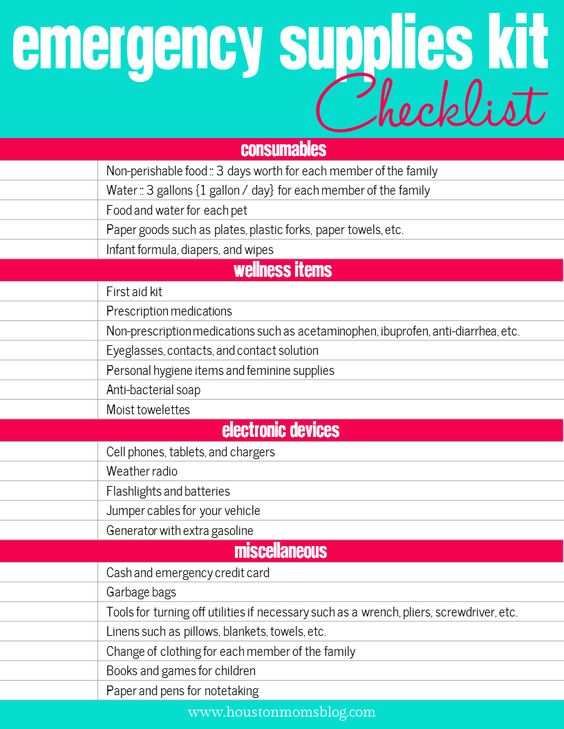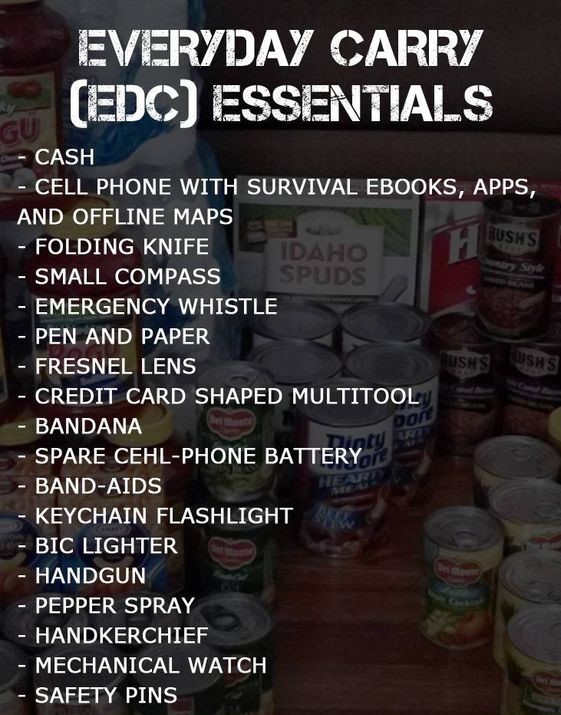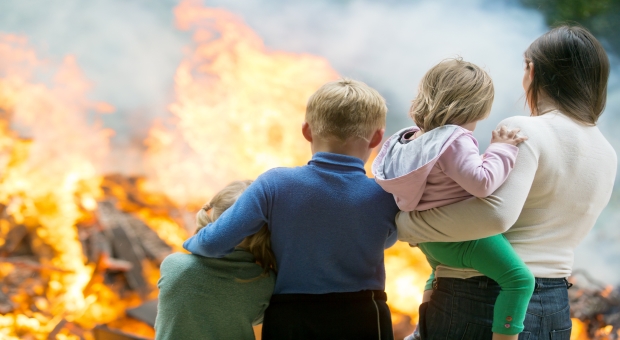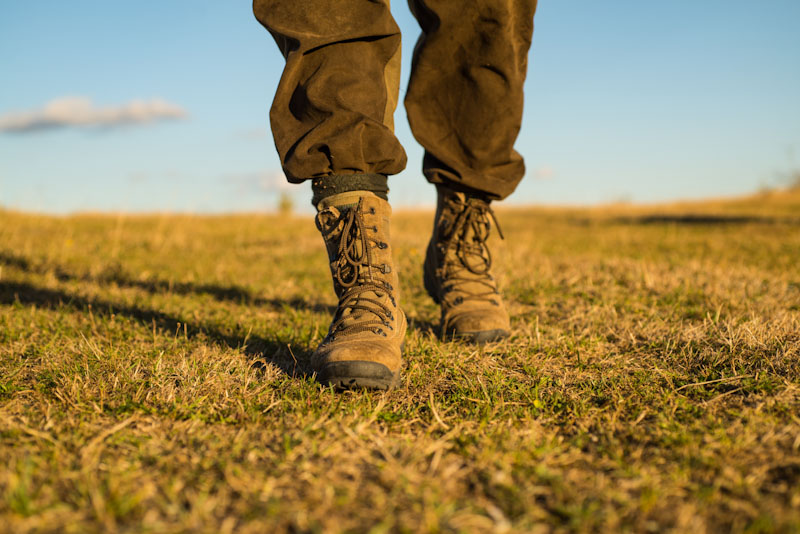We’ve all got them… friends and family members whose survival plan is us.
You know what I mean; they’re the ones who snicker about showing up at your doorstep, expecting you to take care of them, when things go bad. Somehow or other, these people seem to think that they have a right to our hard earned security, even though they haven’t done anything themselves.
The reality here is that these people, like many others in our country today, are displaying what is known as an “entitlement mentality.” Granted, this isn’t what we’re normally talking about, when the subject of entitlement mentality is raised; but if you look at it, it’s the same thing. It’s the idea that they somehow have the right to something that they haven’t earned, but that someone else has earned.
Anyone who is a prepper knows that it takes a lot of time, money and sacrifice to prepare for a disaster. Like anything else in life, it’s a choice that we’ve made; one to protect our families. For others to assume that our sacrifice is their benefit is not only unfair; but totally unreasonable. The trick is getting them to see that. Better yet, to get them to see that our preparedness isn’t going to be the answer to their needs. They’re going to have to do something themselves.
I’ve always found that it’s easier to convince people of something, when I can show them the benefit to themselves. It doesn’t matter if we’re talking about convincing a factory worker to use a new tool or a homeowner to buy a fire extinguisher, there has to be something in it for them, to get them to buy into the idea. This is no different.
What Gives them the Right?
We all tend to start out with the argument of asking what makes them think that they have a right to your preps. They obviously think they have that right or the subject wouldn’t even be coming up. So that argument isn’t going to change their minds. Nevertheless, I still think it’s a good starting point; not to convince them of anything, but rather to use as a foundation for what comes later.
The idea here is to convince them that they aren’t going to survive by depending on you. So by bringing this point up, you’re showing what’s on one side of the scale; their supposed “right” that they are assuming. That’s the only thing that’s going to be on that side of the scale. Then you’re going to start heaping things on the other side. It won’t take long before that scale looks way out of balance, even to them.
That’s what you want. The sooner they realize that their original premise was wrong; the sooner you can start showing them what to do, so that they can help themselves. That’s the win; and it’s a true win for both of you.
Limits to Your Resources
Your first point is that your resources are limited. While you might appear to have a lot in your home, that’s only because they aren’t used to seeing that much food and other supplies in one place, unless it is the grocery store. Your pantry may very well look like the corner grocery store to them, even though it’s not.
All of us have limits to our resources, even if we have two years worth of food sitting in our basements. Since we don’t know what sort of disaster we’re likely to face, that two years of food may not be enough. Just read “One Second After” if you have any doubt about how quickly you’ll go through your supplies. Any grid-down situation is going to require full self-sufficiency or many years worth of supplies.
Supply Limitations
Your supplies have finite limits. How finite? That depends on you, how long you’ve been prepping and how much you’ve invested in it. But let’s be generous and say that you have a year’s worth of food stockpiled in your home. That’s one year’s worth of food for your family. Add another family of the same size and suddenly that year’s worth of food is cut to six months.
But that doesn’t necessarily mean you’re cutting your family’s survival from one year to six months; it could very well mean that you’re cutting your family’s survival from “Yes” to “No.” Let’s use a grid-down situation as our example. If the grid goes down late enough in the summer that it’s too late to plant, you won’t be able to take in your first harvest for almost a year. That means your family will die of starvation, before you can take in that harvest. If you don’t share that food, you’ll have enough to get you through, while you are becoming self-sufficient.
Your erstwhile friend needs to understand that the cost of helping them could be your own family’s life and that you won’t be able to save them in the process. In other words, there is no gain for them, past a few months worth of food.
Space Limitations
Not only are you limited on food and other critical supplies, but you’re probably limited on space as well. Are they going to be willing to sleep on the hard floor, just so that they can mooch off of you? Or are they going to expect you to have beds for them? Perhaps they’re going to expect you to make your kids sleep on the floor, so that they can take the kids beds.
Take my word for it, unless you have two families which are extremely close and get along great, it’s not going to take long for you to grate on each other’s nerves. Then what are you going to do to make things work out?

You Don’t Have what They Need
Of course, all of the above assumes that what you have is what they need, something that’s very dangerous to assume. The truth is that every family is different and every survival situation is different. So, chances are that you won’t have everything they need, even if you do have enough food, water and the other basics.
Special Needs
One of the areas where you probably won’t have what they need is in any special needs. As of 2014, a whopping 60 percent of the adults in the United States had at least one chronic medical condition. It gets worse, because 42 percent have more than one. In other words, chances are 6 in 10 that your friend or family member is going to need some sort of medication that you probably don’t have.
There are countless other special needs that you might encounter as well; not just medical needs. You probably won’t have clothing in the sizes that their kids need, as they grow. Nor will you have pet food for their pets. The list goes on and on and there’s no way that you can cover it.
Different Situation
Of course, their situation might be very different than yours. Even a few short miles can make all the difference in the world. If their home is flooding and yours isn’t, they have different needs than you do. if they live in the city and you live in the country, chances are they’re going to have different needs as well. You can’t be expected to anticipate their needs or be prepared to meet them.
Difficulty in Getting to You
But there’s a bigger problem than supply; that’s them even getting to where you are. I’ve had people living as far as 100 miles away claim that they’re going to come to my house in the event of an emergency. Really? How?
The reality is that there will be very little possibility of anyone making it very far in a post-disaster situation; especially one where the electrical grid is down. But even simper problems can cause major transportation problems. Just look at any evacuation that has happened in the last 20 years. Can you imagine trying to make it to a friend’s home if you were evacuating the Florida peninsula during Hurricane Irma in 2017? Traffic was backed up for several hundred miles.
Granted, we all have an evacuation plan or bug out plan; but that’s us, those who are prepared. Just deciding to jump in your car and boogie over to your prepper friend’s house isn’t a bug out plan; it’s an act of desperation. They need more than that, if they’re planning on surviving. They especially need a plan if they can’t drive.
Their Lack of Training
Another major issue for anyone who shows up at your doorstep is their lack of training. As we all know, survival is an all-encompassing task, requiring a lot of specific knowledge in a lot of specific skills. Anyone who is a part of your survival group or team, but doesn’t know the necessary survival skills, is nothing more than an added burden for you.
That’s bad enough when it is your spouse or kids; but when it is others, it’s insufferable. Basically, it is them saying that they are going to come stay at your house, eating your food and expecting you to wait on them hand and foot. What made you their slave?
If they want that, they should at least be willing to become your slave, so that they bring something of value to the table. But be careful about that. There’s a good chance that they’re overweight and out of shape. How much help are they going to be in caring for your garden, if they can’t even stand up, outside in the heat, all day?

Offer to Help Them Prepare
By the time you’ve gotten to this point, I hope you’ve been able to convince them that you aren’t their savior; but that they need to prepare for themselves. This is the point at which you can turn from the bad guy to the good guy, offering to help.
Obviously, the greatest help you can give them is training and advice. You’ve already been through it, so you know the mistakes that you’ve made. You also know what you’ve had to do to overcome those mistakes. That information is invaluable and can help them to get a good start, without making the same sorts of mistakes.
You can also direct them to good sources of information which you have found, but they are unaware of. We all have our own collection of favorite websites and books that we use. Pointing these family members and friends to those can help prevent them from getting bad information which will waste their time, resources and lessen their chances of survival.
One final area you might help them in is to plant a seed of equipment and supplies in their lives. Perhaps there are things which you have bought and later replaced with better equipment; but you still have them. Those are great for helping someone else to get started. Explain what they are and why you’ve replaced them, while at the same time letting them know that it is something to get them started with.
Keep Some Spare Food and Seed
I realize this is rather controversial with man preppers and there are a lot of people who will disagree with me on this point. But I go a step farther than that, in that I stockpile extra food and seed, which is there so that I can share it with others. I don’t stock the same food that I do for my family; but I do stock rice and beans, which will at least sustain someone, while they are trying to get their garden growing.
More than food, I stockpile seed. I know that I’m going to need a lot of seed in the aftermath of a crisis, especially a long-term one. So I need that seed to turn my entire backyard into a garden. But I have more than that. I have enough to do my backyard a few times over. That way, I can share seed with others, helping them to get their gardens growing and helping them to become self-sufficient.
I also have a rototiller and plenty of gasoline for it. While it’s possible to spade up a back yard with a shovel, it’s hard work. The rototiller helps make sure that my friends and neighbors are going to be able to garden, which helps make sure that they won’t be coming around begging from me.









Lewis | August 20, 2019
|
Bill, you’ve done an excellent job of covering the damage that family or relatives can do once an SHTF event happens. There is also the case of some extreme damage that relatives can cause long before such events. In all three cases that I know of, including my own, an unexpected hospital stay interrupted the routine life of a live-alone person, In each case the relatives managed to break in, allegedly with “helpful” motives, and caused incredible destruction. Some examples include hauling off all kinds of preps to the landfill, throwing away invaluable medical and financial newsletters, scattering books so they couldn’t be dependably found, cutting down protective trees and shrubbery that once kept roving teenage thugs from bricking local windows, re-arranging household goods that were in regular use so they couldn’t be easily accessed (to get them “out of sight”), hiding tools for similar reasons, Some tools took me six months to find.. In a second case, they put half the owner’s household goods into POD-type storage (with no inventory) so he had no idea what was stored and what had been hauled to the trash. Working appliances were thrown away. All the carpet not covered by furniture was ripped up and trashed. The third example was about as bad.
In all cases, the break-ins were committed without the owner’s knowledge or permission, and no apology was ever given. The extreme arrogance of “we know better than you” reigned supreme. So far, I’ve found no good ideas on how I could have prevented the problem, nor any good ideas for recourse. This is a disaster hazard that I’ve never seen discussed.
Rod Clark | August 20, 2019
|
I have had precisely this happen to me twice while unexpectedly ending up in hospital. People who lived with me rifled thru my stuff and either confronted me about things when i was too weak to respond cautiously, or they converted things to their own use including my “small bills” cash reserve. Im in the process of building hard-to-detect storage cabinets akin to thin bookcases that will hide my preps and defenses
Illini Warrior | August 21, 2019
|
another whole aspect to relatives/friends >>>>>> arriving late to the party …
dis-believing sheeple will inveterately hold out until the SHTF is absolutely detrimental to their lives – includes SHTFs with contamination – particularly pandemics and disease spread post-SHTF – radiation fallout being the other possible contamination situation ….
if you feel obligated to take in the late party comers – that means prepping for de-contamination and isolation – possibly heavy duty med preps to combat diseases like Typhus and killer flu …..
Libertys Son | August 23, 2019
|
Saving seeds is time consuming and/or expensive. Seeds do not last long. So, you need to purchase seeds every other year, or you need to grow plants and harvest seeds every year or two. I found that growing food is not as simple as putting seeds in the ground and watering plants. Even after gardening for the last few years, I do not believe I could plant and harvest enough food to feed my family yet.